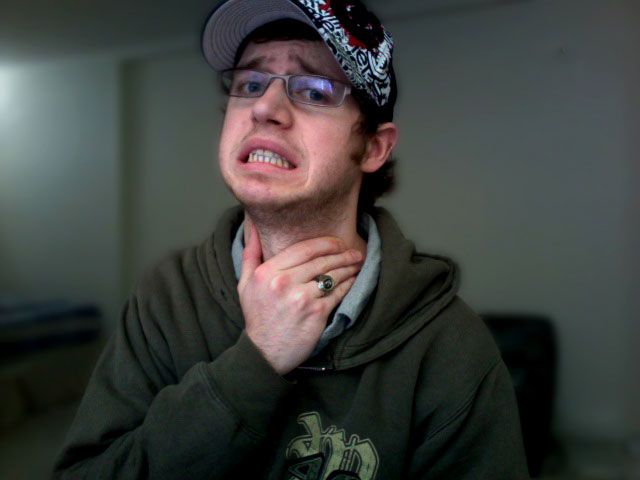Sore throat, lumps and unusual bleeding are just some of the signs you shouldn't ignore, says oncologist Dr P Jagannath.

Two years ago, I'd participated in a meeting of Cancer NGOs 'Can India Conclave'.
There was a panel discussion conducted by Sanjay Pugalia of IBN 7. I was asked to make the final comments on how to tackle the oncoming 'Cancer Tsunami' .
First of all, let me assure you that cancer is not a tsunami, a national disaster of high magnitude. The increase in cancer incidence is the price we pay for development.
As the lifespan and longevity increases, communicable diseases decrease and non-communicable disease like diabetes, cardiac disease and cancer will take the forefront.
We will have to obviously change our strategy. Earlier the focus of healthcare was mostly on controlling diarrhoea and dysentery; now it has to shift to controlling diabetes, cancer and cardiac diseases -- more lifestyle related issues.
Going back to the panel discussion, I'd asked the learned audience a simple question: How many of you know the seven warning signals of cancer?
Very few hands went up. It showed our own lack of important knowledge.
Here, I'd like to stress that every NGO, every work place and every organisation should just get this simple message across: It is not just enough to take note of the warning signals of cancer; it is also important to act on them.
CAUTION is the acronym developed by American Cancer Society to list the 7 warning signals.
I strongly advise that every point in CAUTION has to be followed by an ACTION.
This table below will guide you what to do:

With this information I am sure many can benefit from early diagnosis.
I must emphasise that these symptoms may not mean cancer; may be something which is much less risky.
When there is a symptom it is best to get checked and be assured that there is no malignancy.
Early diagnosis has a high potential for cure and should not be missed.
After you read this, don't forget to pass it on to as many people as you can. That is the best way to beat the Big C. Many lives can be saved.
The author Dr Jagannath is chairman, department of Surgical Oncology, Lilavati Hospital and Research Centre, Mumbai.










